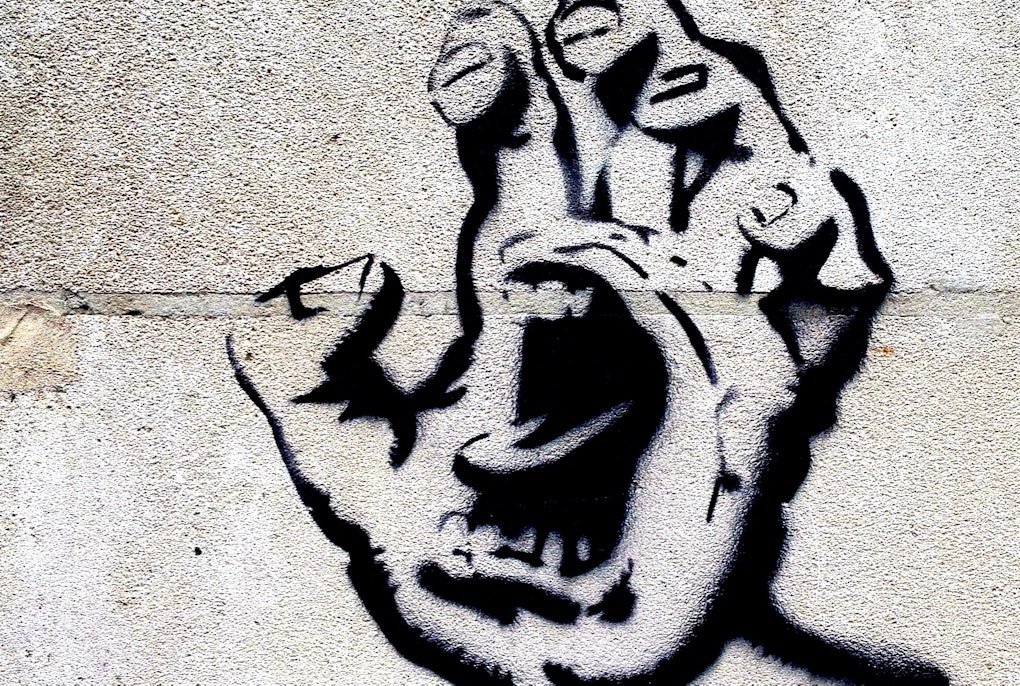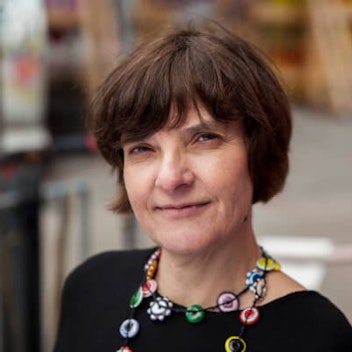
Emocracy: an end or beginning?
 Daniela Ingruber
Daniela Ingruber
The outbreak of the Corona virus crisis and especially the consequent debates over what role the European Union (EU) should play in its wake, have led many to question whether it is even possible to talk about “European solidarity”. Despite some member state’s evident reluctance, in an attempt to answer this question, my claim is that, researchers and citizens, should not fail to consider a further dimension where the EU and its regions actively cooperate to improve people’s lives all over Europe. Lastly, I bring here my experience as the project manager of the Together for Cohesion campaign to show how challenges can trigger a further step towards solidarity.
A crisis as unprecedented as the one posed by COVID-19 required a concrete response from the European Union and its members. A response that for some us was obvious in light of the solidarity that should tie our countries together. Yet, while the European Commission acted as the police of solidarity, pushing its states to cooperate, in some circumstances, high-level politics did not fail to disappoint us with some state’s unwillingness to support the most affected ones (examples can be found here, here, and here). The EU’s inner cleavage was well visible: supranationalism vs intergovernmentalism. In this context, it was legitimate and probably even advisable to ask ourselves “where European solidarity lies?”
In my view, the answer to this question goes beyond the above-mentioned dichotomy. It is worth moving our focus from those exciting and controversial high-politics debates to something that is somehow less popular in the news, despite its direct impact on people’s daily lives, i.e. European cohesion policy. Every seven years, the European Union commits the largest share of its budget to pursue the ambitious objective of ensuring the balanced economic and social well-being of its regions. In concrete, this goal translates into cooperation with regions, all over Europe, that define and implement projects and actions needed to boost or strengthen employment, education, social inclusion and equality, access to healthcare, infrastructures and (transport) accessibility, environmental protection, support to enterprises, and institutional practices. To be even more concrete, this further translates into the modernisation of Timisoara County Hospital’s Emergency Unit to allow for an increase of 25% to its receiving capacity and enhanced quality in the healthcare services; the support to the Kirana Laser Start-up in Trentino, needed to develop mechatronics’ competitive innovative services deserving of a place in the international market as well as collaborations with research centres of excellence; or the establishment of two packages of measures specifically designed for regions to respond to the COVID-19 crisis.
Yet, only 40% of European citizens are aware of these actions. In the words of a famous aphorism, what I am claiming in these paragraphs, is that too often “a falling tree makes more noise than a growing forest” (Lao Tzu). A reality that is undoubtedly daunting for those who are committed to pursuing the ambitious goal of reducing disparities and boosting solidarity in Europe.
The perfect opportunity to share where European solidarity lies arose for me in concomitance with the adoption of the safety measures to limit the spread of COVID-19. I was in Trento (Italy), my hometown, when I signed the contract for a new job position at the Assembly of European Regions (AER) and the same evening, the Italian Prime Minister announced the establishment of the lockdown to the all country. This is how the mission of enhancing people’ awareness about European cohesion policy became the core of my days in confinement.
During these months, I took over the coordination of the Together for Cohesion campaign, lead by AER with the support of the mc Group, and co-financed by the Directorate General of Regional and Urban Policy of the European Commission. The campaign aims to raise awareness of the benefits of cohesion policy for citizens and stakeholders through a series of actions undertaken at both European and local level. To this objective, it is run in partnership with six European regions: Alba (RO), Catalonia (ES), Csongrad (HU), Timis (RO), Trentino (IT), and Varazdin (HR).
Of course, the implementation of a communication campaign in various regions at this challenging time has not been without its difficulties. The campaign was designed to attract and involve a great number of citizens and stakeholders through the organisation of a series of local and international events, workshops and trainings, press trips, and a wide media coverage. All actions planned to showcase the concrete achievements of cohesion projects and initiatives, also involved physical contact among people at meeting, gatherings, and sometimes for travel. Moreover, as we all know, regions have been at the forefront of the fight against the virus, dedicating all their energies and workforce. In these circumstances, it was unthinkable to also demand additional time and energy from our six partner regions to devote to the campaign.
It is from these challenges – or better from the reaction to these challenges – that I have further enhanced my same understanding of European solidarity. While I have been working within European cohesion policy for some years, and thus already boosted a solid awareness of what it offers to its citizens, this time I had a new and direct view over the passion and determination of the regions engaged. All the partners agreed that in this circumstance, more than ever, it was important to continue our mission, they committed to jointly rethink the activities, and learn from each other during the implementation of these new ideas. Webinars, short-documentaries, online interviews, TV episodes, short movies, and series of videos are only some of the actions that we put in place to continue and further our campaign.
This is how Together for Cohesion has brought some positive opportunities in a time of challenges. On one side, it was an occasion to fuel thoughts over European solidarity by offering alternative stories beyond the major political debates of the time. On the other, it was a chance to witness the extent and the potential that regional cooperation has when it comes to reacting to difficulties. Lastly, it was my anchor to the real world and my arm towards Europe when I was not able to look beyond the horizon of my house.
 | Birgit Sandu is the European Project Manager at the Assembly of European Regions. Her areas of interest encompass European governance, cohesion policy, and democratic values and institutions in the EU. She holds a MSc in European Public Policy from UCL, and her professional experiences include both the private and public sectors as the internship at the Directorate General for Regional and Urban Policy of the European Commission, and two collaborations with the Institute of Comparative Federalism of Eurac Research. |
This content is licensed under a Creative Commons Attribution 4.0 International license.